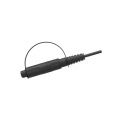Unveiling the Significance of Fiber Optic Connectors and their Global Impact

Fiber optic connectors play a pivotal role in modern communication networks, seamlessly transmitting data via optical fibers with unparalleled speed and reliability. As the backbone of our interconnected world, it becomes imperative to adhere to internationally recognized standards and certification systems to ensure compatibility, interoperability, and superior performance. This article aims to provide a comprehensive overview of the various international standards and certification systems governing fiber optic connectors, highlighting their significance and impacts.
1. International Standards for Fiber Optic Connectors
Standards help establish uniform specifications and guidelines for the design, manufacture, and performance of fiber optic connectors. Organizations such as the International Electrotechnical Commission (IEC) and the Telecommunications Industry Association (TIA) develop and publish these standards, ensuring compatibility and reliability across different manufacturers and systems.
2. Certification Systems for Fiber Optic Connectors
Certification systems ensure that fiber optic connectors conform to the specified standards and meet the required performance criteria. These systems involve rigorous testing and evaluation of connectors by authorized testing laboratories. Certification bodies such as the British Approvals Service for Cables (BASEC) and the Fiber Optic Association (FOA) provide the necessary certification, assuring consumers of the connectors' quality and compliance.
3. Impact of International Standards and Certification Systems
The adoption of international standards and certification systems provides several benefits. Firstly, it enables compatibility between connectors from different manufacturers, allowing for seamless integration and interchangeability. Secondly, it ensures reliable and efficient transmission of data, reducing signal loss and maximizing network performance. Additionally, compliance with these standards and certifications instills confidence in consumers, promoting trust in the industry and safeguarding investments in fiber optic infrastructure.
Conclusion
Fiber optic connectors are the lifeline of our global communication networks, enabling the transfer of vast amounts of data at lightning speeds. Adhering to international standards and certification systems guarantees compatibility, reliability, and optimal performance of these connectors. By embracing these standards, the industry fosters innovation, enhances global connectivity, and ensures the seamless functioning of our increasingly interconnected world.



